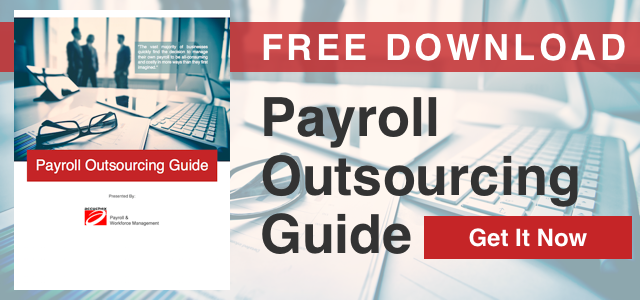 A number of new California labor law issues have already gone into effect, or will, and promise to have significant impact on employers.
A number of new California labor law issues have already gone into effect, or will, and promise to have significant impact on employers.
Previous posts have detailed many of these laws, but there are three issues in particular that California employers need to take note of.
Because compliance is so critical for HR professionals and managers, staying abreast of new requirements and regulatory issues is of paramount importance.
California Labor Law - Breaks, Paid Sick Leave, Minimum Wage - What You Need to Know
While there were a number of changes and additions to California labor law in 2014 and 2015, here are three of the more prominent changes:
1. Meal and Rest Breaks
Effective January 1, 2016, this law adds to the existing state Labor Code. The new Section 226.2 will make it even more difficult for California employers to pay employees on a piece-rate basis for any part of their work.
- It requires employers to pay piece-rate employees for rest and recovery periods, and all periods of “other nonproductive time” separately from, and in addition to, their piece-rate pay.
- It makes wage statement compliance for piece-rate employers even more complex.
- As it does not contain a collective bargaining exemption, it also applies to employers of unionized employees.
Section 226.2 requires that employers pay employees for rest and recovery periods and “other nonproductive time” as follows:
Rest and recovery periods.
Employers must pay piece-rate employees for rest and recovery periods at an hourly rate that is determined by dividing the employee’s total compensation for the workweek (excluding compensation for rest and recovery periods and overtime premiums) by the total hours worked during the workweek (not including rest and recovery periods). The bill allows certain employers some additional time to program their payroll systems to comply with the “average hourly rate” requirement, provided that they retroactively pay employees the required amount.
Until April 30, 2016, certain large, newly acquired, or publicly-traded employers can pay employees the applicable minimum wage for rest and recovery periods, provided that they begin paying employees based on the specified rate by April 30, 2016 and retroactively pay all affected employees the difference between minimum wage and the required average hourly rate (plus interest) by that date. All other employers must modify their payroll systems to comply with the new requirements by January 1, 2016.
Meal and Rest Break Obligations of Employers In California
Employees cannot work more than five hours without providing an unpaid, off-duty meal period of at least 30 minutes. The first meal period must be provided no later than the end of the employee's fifth hour of work.
Second 30-Minute Meal Break
If an employee works more than 10 hours employers must provide a second meal break of no fewer than 30 minutes. The second meal break must be provided no later than the end of an employee's 10th hour of work.
10-Minute Rest Break Obligations
Employers permit rest periods for all nonexempt employees whose total daily work time is at least 3.5 hours. These mandatory rest breaks must be offered at the rate of 10 minutes for every four hours worked, or "major fraction" thereof. Anything over two hours is considered by the courts to be a "major fraction" of four.
Rest periods must be treated as hours worked, and employers must pay rest periods as time worked. Because employees receive compensation for rest breaks, they can be required to remain on the premises during their rest breaks.
2. California Paid Sick Leave Law
As of September 10th, California became only the second state in the nation to provide paid sick leave with the signing of the Healthy Workplaces, Healthy Families Act of 2014
Highlights of the new California sick leave law, AB1522, known as the the Healthy Workplaces, Healthy Families Act of 2014:
- It adds eight new sections to the Labor Code and amends a ninth section, contains detailed record keeping and notice requirements, including a new poster requirement, provides penalties for noncompliance.
- The Act applies to all private and public employers regardless of size; small employers are not exempt.
- All employees who have worked in California for 30 or more days within a year from the beginning of their employment will be entitled to paid sick days under the Act.
- Part-time and full-time employees are covered as well as exempt and non-exempt employees.
- The new law requires employers to provide paid sick leave to any employee who worked in California for 30 days at an accrual rate of one hour for every 30 hours worked.
- Employers are allowed to limit an employee’s use of paid sick leave to 24 hours or three days in each year of employment and put a maximum cap on total accrual of 48 hours or six days.
- The effective date for employers to begin providing the paid sick leave benefit is July 1, 2015.
- Accrued paid sick days can carry over to the following year of employment, just like vacation. But, an employer can limit the amount of paid sick days an employee can use in each year of employment to 24 hours every three days.
- Some types of employees are not covered under the Act and are limited to the following four groups:
- Employees covered by a union contract that specifically provides for paid sick leave, has binding arbitration, and meets other specified requirements
- Construction employees covered by a valid union contract
- State providers of in-home supportive services under certain sections of the Welfare and Institutions Code
- Certain air carrier employees
3. Changes in the California Minimum Wage
With a few exceptions, most all employees in California have to be paid the current minimum wage as required by state law. As of July 1, 2014, the minimum wage in California was increased to $9.00 per hour. This has been in effect throughout the year 2015.
However, beginning on January 1, 2016, the minimum wage in California will once again increase to $10.00 per hour. Certain employees are exempt from the California minimum wage law, including individuals who are the parent, spouse, or child of the employer, outside salespersons, and apprentices regularly indentured under the State Division of Apprenticeship Standards.
There is also an exception for learners, regardless of their age. However, these individuals cannot be paid not less than 85 percent of the minimum wage and rounded to the nearest five cents. This lower rate only applies during the first 160 hours of their employment in occupations in which they have no previous similar or related experience.
In addition, there are exceptions for employees who are mentally or physically disabled, or both, as well as for nonprofit organizations such as sheltered workshops or rehabilitation facilities that employ disabled workers. Such individuals and organizations may be issued a special license by the Division of Labor Standards Enforcement authorizing employment at a wage less than the legal minimum wage.
California Labor Law, Accuchex and Compliance
It is critical to keep your company safe and your management team informed and in compliance.If you have questions regarding this, or other HR issues and practices, let us help you in managing your HR needs, payroll processes, and staying on top of compliance demands. Get your Free Download: Payroll Outsourcing Guide to help you make an informed decision or call Accuchex Payroll Management Services at 877-422-2824.


